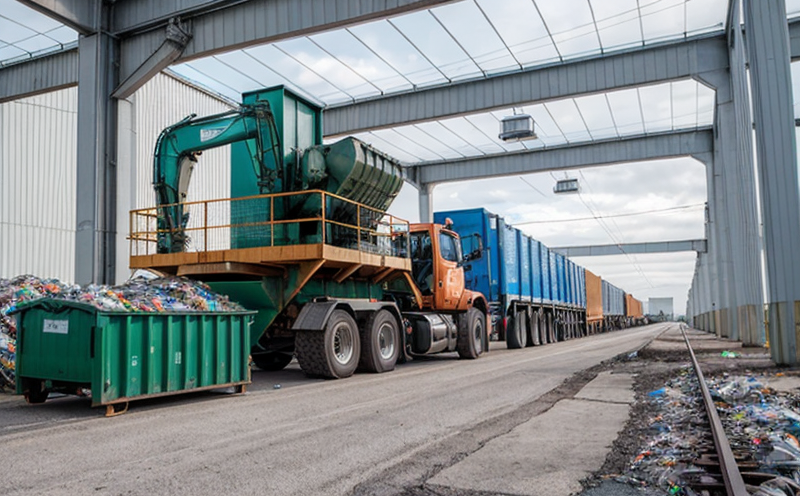ASTM D8178 Steel Scrap Recycling Testing
The ASTM D8178 standard is a critical tool in the assessment of steel scrap intended for recycling. This method ensures that recycled materials meet stringent quality standards, thereby maintaining high performance and durability in downstream products.
Recycling steel scrap is crucial for sustainable manufacturing processes within industrial sectors like automotive, construction, and appliance industries. Ensuring that recycled steel scrap meets the same rigorous testing standards as virgin raw materials helps to preserve the integrity of these products while reducing environmental impact.
The ASTM D8178 test evaluates various chemical composition parameters including carbon content, sulfur levels, phosphorus content, and trace elements such as manganese, silicon, and nickel. These factors are essential for predicting how well a particular batch of steel scrap will perform in subsequent manufacturing processes. The test also assesses mechanical properties like tensile strength, elongation at break, yield point, and impact resistance.
Preparation steps involve careful sampling from the bulk material to ensure representativeness. Samples are then homogenized and analyzed using various analytical techniques including X-ray fluorescence (XRF), inductively coupled plasma spectroscopy (ICP-MS), and mechanical property testing machines. Compliance with ASTM D8178 ensures that recycled steel scrap is consistently reliable for use across different applications.
The significance of this test cannot be overstated, especially considering the growing emphasis on circular economy practices in industrial manufacturing. By adhering to such standards, industries can significantly reduce their carbon footprint and contribute positively towards sustainability goals set forth by international bodies like the United Nations Framework Convention on Climate Change (UNFCCC).
Furthermore, compliance with ASTM D8178 helps manufacturers avoid potential legal issues associated with non-compliant recycled materials. It also enhances brand reputation among consumers who increasingly value eco-friendly products. In essence, this testing method plays a pivotal role in ensuring the quality and reliability of steel scrap used across various sectors.
Eurolab Advantages
- State-of-the-art facilities equipped with cutting-edge technology for precise analysis.
- Experienced team of experts specializing in recycling and circular economy processes.
- Comprehensive quality assurance programs tailored to meet individual client needs.
- Quick turnaround times ensuring minimal disruption to your operations.
Quality and Reliability Assurance
EuroLab offers robust quality control measures throughout the entire testing process, from sample preparation through to final reporting. Our laboratories adhere strictly to international standards such as ASTM D8178 ensuring accuracy and reliability of results.
We employ highly skilled professionals who are well-versed in both theoretical knowledge and practical application of these tests. This ensures that our findings reflect real-world conditions accurately reflecting the performance characteristics of recycled steel scrap.
Our commitment extends beyond just conducting tests; we provide detailed reports which include recommendations for improvement where necessary. These insights enable clients to make informed decisions about their supply chains, thereby enhancing overall efficiency and profitability.
Competitive Advantage and Market Impact
- Stand out in competitive markets by demonstrating adherence to stringent environmental regulations.
- Promote trust among stakeholders including customers, investors, and regulatory bodies.
- Enhance reputation through consistent production of high-quality recycled steel scrap.
- Facilitate smoother operations by avoiding costly rejections or recalls due to non-compliance issues.





